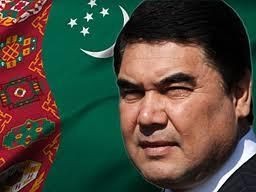ASHGABAT (TCA) — Turkmenistan’s petro-authoritarianism is likely to continue to be fuelled by a combination of its large natural gas reserves, small population and steady global demand for natural gas, Annette Bohr writes in the report “Turkmenistan: Power, Politics and Petro-Authoritarianism”, released earlier this month by Chatham House, an independent policy institute based in London.
“The leadership is able to sustain its rule through the centralization and control of revenues from hydrocarbons exports, which it uses to finance pervasive security services and patronage networks. Corruption and general lack of transparency continue, with virtually no information available to the public on the budget and government spending. President Berdymukhammedov and his small elite circle have no incentive to introduce reforms as long as they are able to meet societal aspirations and control dissent. If a transition from Turkmenistan’s authoritarian regime were to take place, it would be more likely to result in a new brand of authoritarianism,” the report said.
“Regional loyalties still hold sway, despite efforts at nation-building. The president’s Ahalteke tribe is predominant in governing institutions and business networks. Personnel reshuffles occur regularly, but mid-level officials in particular are retaining their positions for longer, potentially allowing them to cultivate their own power bases. Turkmenistan suffers from an acute shortage of skilled personnel, a degradation of the educational system and an underdeveloped industrial base. The infrastructure, healthcare and education projects undertaken under Berdymukhammedov have tended to be of a showcase nature.
“Despite a marked increase in state diplomacy, Turkmenistan has taken few genuine steps to engage with the international community. The country has yet to capitalize fully on its position as a ‘gas giant’ and it faces considerable challenges in every direction in getting its gas to market. Exports to China should continue to provide a reliable stream of revenues, but the slump in world energy prices and the cessation of gas exports to Russia and possibly to Iran mean that Turkmenistan still needs to hedge its bets.
“Concerns about human rights and religious freedom should be raised during bilateral meetings with the government of Turkmenistan, and Western embassies and international organizations should maintain contact with human rights activists and ensure review of Turkmenistan’s record in appropriate international forums. Legal regulations or propositions from the government of Turkmenistan likely to facilitate corruption should be brought to the attention of Western investors, and the Turkmen authorities should be encouraged to increase transparency and accountability with regard to hydrocarbons revenues,” the report concludes.



